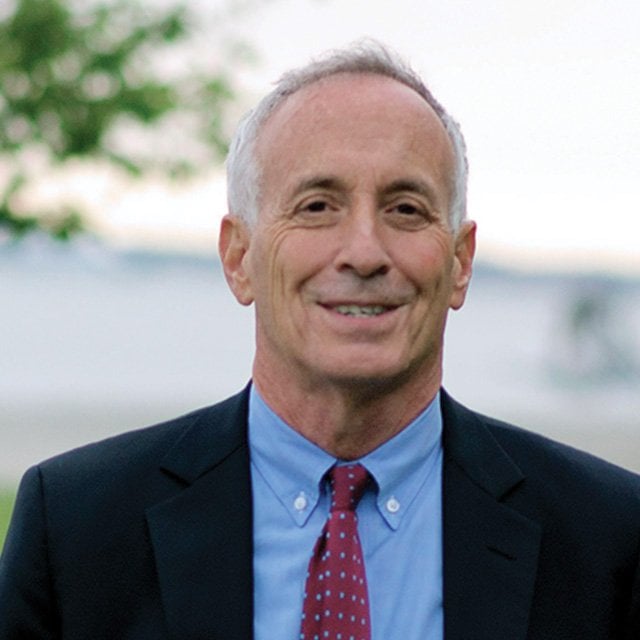Kotlikoff: Don't Let Social Security Dupe Your Clients Into Claiming Early

Typical workers’ lifetime spending could increase by 10.4% if they simply waited until age 70 to start Social Security benefits. But, according to a new study, “How Much Lifetime Social Security Benefits Are Americans Leaving on the Table?” only 10.2% of Americans do so. This means a median loss of “lifetime discretionary spending of $182,370.”
To put it bluntly, “You’re giving up eight years of benefits if you take Social Security at age 62,” argues Boston University economics professor Laurence Kotlikoff, in an interview with ThinkAdvisor.
Kotlikoff and two colleagues conducted the study, released Nov. 16.
Optimizing Social Security benefits is “more important than ever because of the inflation risk factor,” Kotlikoff says. “In the setting we’re in … it’s particularly nuts for anybody not to optimize.”
In the interview, the professor discusses reasons that consumers opt to start Social Security early.
But often it is the Social Security Administration itself that misleads workers into taking benefits before the optimal time. Either they tell them outright to do so, or they fail to fully disclose vital information.
Kotlikoff calls this scamming, and blames some of it on the inefficiency of the administration, where, he says, “It’s like, nobody is in charge. There are problems all over the place, and nobody is addressing them.”
Named by The Economist one of the world’s 25 most influential economists, Kotlikoff is director of the Fiscal Analysis Center and a research associate of the National Bureau of Economic Research. He served on President Ronald Reagan’s Council of Economic Advisers.
Kotlikoff’s newest award-winning book is “Money Magic: An Economist’s Secrets to More Money, Less Risk and a Better Life” (Little, Brown Spark – 2022).
He is founder and president of Economic Security Planning, a financial planning software firm. The economics-based software is available in consumer and advisor versions.
Also, he has recently launched a newsletter and podcast, both titled “Economics Matters.”
ThinkAdvisor held a phone interview Dec. 2 with Kotlikoff, who was speaking from Boston. In our conversation, he explains strategies that folks can use to receive benefits to which they’re entitled.
The former consultant to the International Monetary Fund and to firms including Merrill Lynch and Fidelity Investments has a stern warning: Consumers must not “fall prey to Social Security calling to con you into taking benefits … before 70.”
Here are excerpts from our interview:
THINKADVISOR: A recent study you conducted, “How Much Lifetime Social Security Benefits Are Americans Leaving on the Table?” concluded that “virtually all American workers 45 to 52 should wait” to collect Social Security and that more than 90% “should wait till age 70.”
But only 10.2% “appear to do so,” as you noted in the paper. Why don’t they wait?
Laurence Kotlikoff: People aren’t thinking through the cash-flow issues and how they can get around their cash-flow constraints that they’re facing.
In the paper, you state that the median loss for the above age group is about $182,370 and that “optimizing would produce a 10.4% increase in typical workers’ lifetime spending.” Please elaborate.
That means half the people will lose less than that, and half will lose more.
The main thing is you’re giving up eight years of benefits if you take Social Security at age 62.
What other reasons motivate people to take Society Security early and “leave money on the table”?
Part of what’s going on is psychological. Let’s say a husband is working, and his wife is retired and not working.
The wife says she feels guilty spending her husband’s money, so she takes her retirement benefit at 63 because she wants to have her own money.
A friend of ours told us that’s what happened. The wife said, “I always had my own money, and I didn’t feel good spending Joe’s,” even though they’d been married two years and had been partners for 15 years before.
You say that waiting until age 70 is also excellent for a surviving spouse because higher benefits are provided. Please explain.
If they’re the higher earner, they may get nothing. But if they’re the lower earner, they’ll get extra benefits. That could be a huge deal.
We knew a doctor who was diagnosed with pancreatic cancer at 68. His wife essentially had no earnings record.
He went to Social Security, who never asked him about his wife or told him about widows’ benefits.
They said: “Take Social Security immediately; otherwise, you’ll die and get nothing.”
That was exactly the wrong answer. It was much better for him to wait till 70 because [at his death], his widow’s benefit would be 16% higher for the rest of her life.




